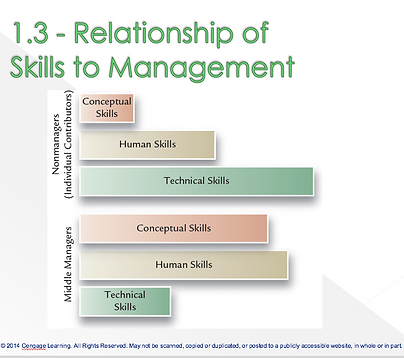Learning to Manage Internationals
Starting my last year at the University of South Carolina Salkehatchie in August 2016 I knew that I would have to perform at the highest level in the classroom and on the field in order to stay on track for my goals. A new and difficult task began with the start of soccer preseason on August first. My friend Gabino and I are going to be captains for the men’s soccer team. For me, this means to lead by example on the field and beyond because I want to be a role model for my teammates, especially those who are freshmen.

Later in August school, including my Management 371 class started and I began to learn about how to manage and lead groups or businesses. We discussed the skills needed and developed by a good manager and I immediately tried to implement the new knowledge to my leadership of the soccer team. I noticed quickly that the implementation and execution of plans are not easy. As professor Cherry stressed in class: “No battle plan survives enemy contact!”.

I experienced how feelings, emotions, uncalculated parameters, and especially the cultural differences in a team with 15 nationalities can throw over all the good plans and resolutions. It takes a lot of caution, work, and self-control to stay calm in every situation and to follow through with the plan. The most important thing I noticed is that I won’t be successful if I try to hold on to the original plan no matter what happens. It is crucial to adjust the plan to ever change while the implementation is in progress. This takes us back to the quote of professor Cherry stating that "no battle plan survives enemy contact".
During the following weeks, the management class focused on certain skills needed by managers and put them in contrast with skills of non-managers. We learned that non-managers have low conceptual skills, normal human skills, and high technical skills. I can project all of the above on an average player on the team who is not involved in conceptual tasks, gets around with other teammates, and has high abilities as a player. On the other hand, managers have high conceptual skills, very high human skills, and low technical skills.
The projection of the manager skills would match a coach better than a captain. The captain still needs high technical skills because he is actively on the field and needs to perform with the other team members. Nonetheless, the captain needs higher conceptual skills and higher human skills than an average player. This is due to his responsibilities on and off the field. A captain is sort of the coach actively playing the game because he keeps the team organized, maintains the tactical execution, and solves any issue with the referee.

Throughout the season there were several moments where I could take use of things I learned in Dr. Cherry’s Management 371 class. I noticed most of the connections between the class and the field when I reflect certain situations after they happened. The nature of soccer as an ongoing game does not provide enough time to thoroughly overthink every decision. Every situation demands a quick, intuitive, and hopefully correct reaction from every player.